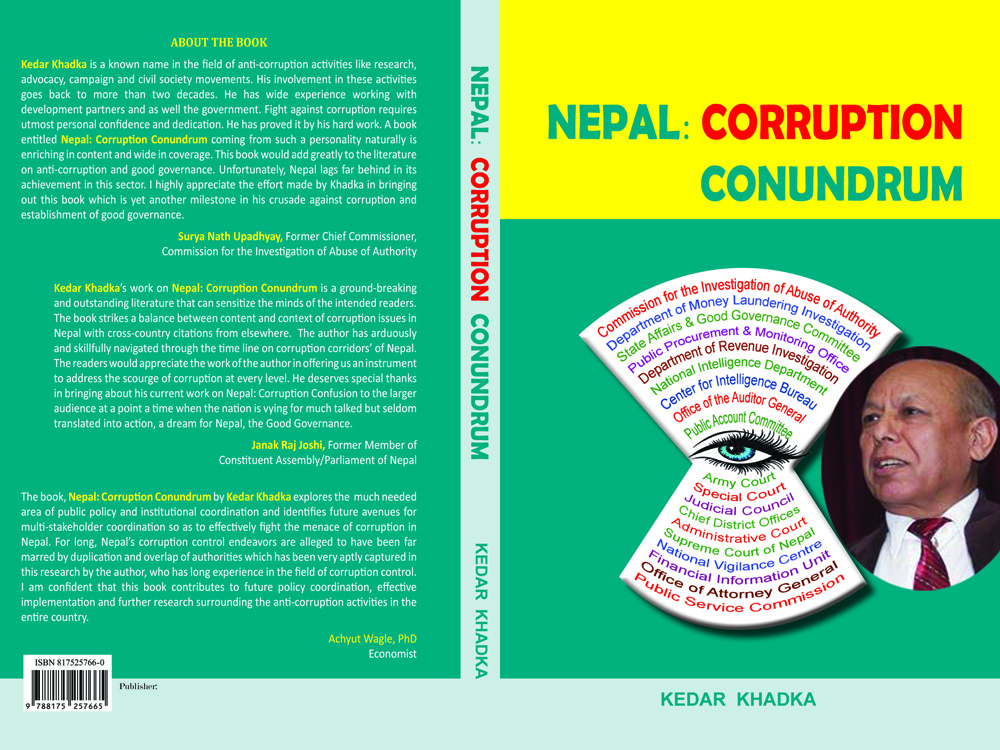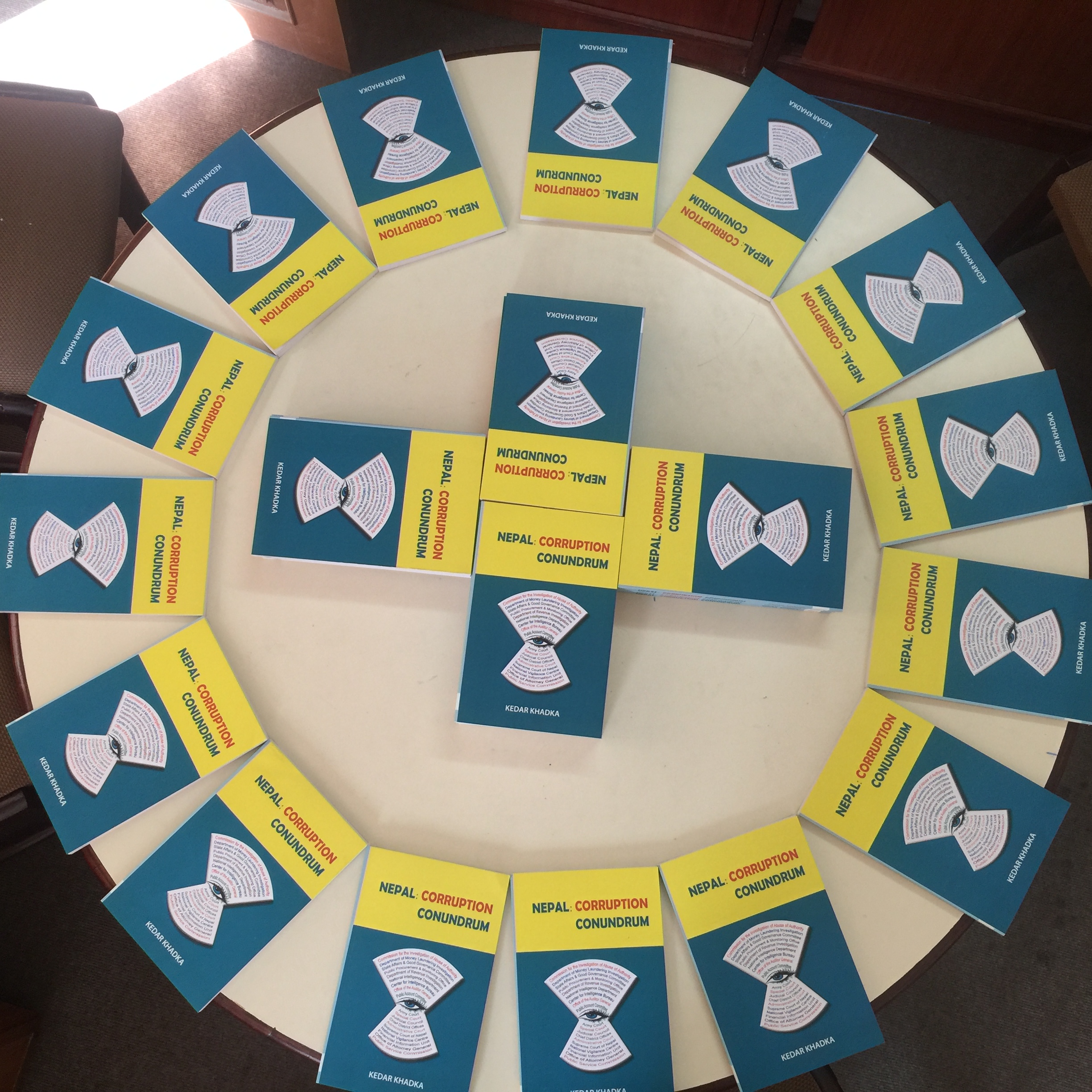A book published Nepal: Corruption Conundrum
Kathmandu, Oct 31. A book entitled Nepal: Corruption Conundrum written by Kedar Khadka – a name synonymous with advocacy on good governance, zero tolerance against corruption and right to information has been recently publicized. This book is in many ways a recollection of his long experience gained through his continuing crusade for transparency and accountability in public service delivery through application of social accountability mechanisms.
The book provides valuable and extensive information, among others, about – evolution of anti-corruption legal framework and anti-corruption agencies in Nepal. This information combined with the description of international obligations of Nepal in combating corruption adds to the overall value of the book.
Against this backdrop and also considering that Nepal is often internationally credited for having made constitutional provision for a strong anti-corruption body like Commission for the Investigation of Abuse of Authority (CIAA), the author has put forth his argument that extensive institutional arrangement and plethora of laws and regulations are not enough to curb corruption.
The author has further argued that with 19 agencies, including CIAA and Office of the Auditor General – another constitutional outfit, overseeing corruption-related issues, the multi-agency approach that Nepal has taken to fight against corruption has, unfortunately, not yielded the desired result of reducing corruption.

The gap analysis so painstakingly done and demonstrated through selected examples of Nepalese anti-corruption and oversight agencies such as CIAA, Auditor General and National Vigilance Center, parliamentary oversight committee such as State Affairs and Good Governance Committee and Special Court, Supreme Court, and Attorney General by the author shows that – more attention has to be paid to corruption as an ever widening phenomenon in the society, much better investigation is required before prosecuting those accused in corruption, speedy dispensation of corruption-related cases is necessary in order to prevent political meddling, bureaucratic delaying and tampering with evidence, and few more.
The conclusions and recommendations made by the author deserve being duly considered by the policy makers while revising or reformulating the policies and laws to give more teeth to the anti-corruption agencies and laws
The book has been reviewed by prominent personalities such as Surya Nath Upadhyay, Former Chief Commissioner, CIAA, Janakraj Joshi, Former Member of Parliament and Dr Achyut Wagle, a prominent Economist.

Mr Upadhyay has said that the book coming from a known name in the field of anti-corruption activities like research, advocacy, campaign and civic movements is ‘is enriching in content and wide in coverage. This book would add greatly to the literature on anti-corruption and good governance’ in Nepal. Similarly, Joshi has said ‘Nepal: Corruption Conundrum is a ground-breaking and outstanding literature that can sensitize the minds of the intended readers’. Likewise, Dr Wagle has said the book ‘explores the much needed area of public policy and institutional coordination and identifies future avenues for multi-stakeholder coordination so as to effectively fight the menace of corruption in Nepal’.
The book published by the Eureka Publication is expected to be very useful to policy makers, national and international social researchers, academia and training institutions involved in anti-corruption and good governance, postgraduate degree, MPhil and PhD scholars and for those preparing for Public Service Commission entrance examinations.
प्रकाशित मिति : १४ कार्तिक २०७५, बुधबार २२:१२












